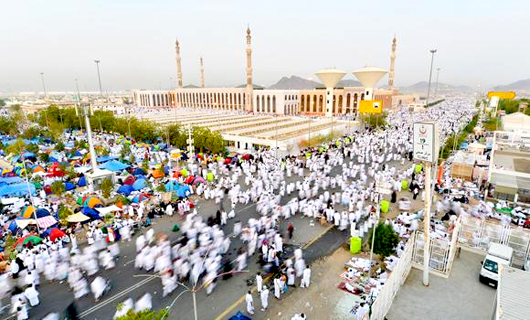Jeddah, Aug 15: Prices for local Haj packages are expected to drop between 30 and 40 percent this year, according to an official at the Ministry of Haj.
Most local Haj operators have begun to change their packages after the ministry announced the launch of the online portal for local pilgrims.
According to the source, the portal will help curb the incidence of fake Haj campaigns, ensure the security of pilgrims, combat exceedingly high prices and guarantee the rights of all parties.
Hussain Al-Shareef, deputy minister for Haj affairs, said the portal will allow residents and citizens to easily access licensed Haj companies, as well as obtain clear and transparent information about services provided.
Starting next week, individuals can access the site and register in order to identify services without visiting the company.
He said the ministry has sought to unify the types of services provided in order to assure equality and ensure no companies are overpricing their services.
Prices for local Haj packages under the new system vary between SR5,893 and SR8,146 per person, depending on the group and level, as well as on the form of transportation included. Last year, prices varied between SR8,500 and SR14,500, and often went as high as SR20,000 per person.
According to Osama Al-Filani, president of the National Committee for Haj, the portal includes a number of positive benefits, as it will reduce prices by at least 40 percent this year.
He said it would also allow the ministry to monitor and tighten control over all services provided to pilgrims to ensure there are no violations of regulations and Haj instructions, as well as achieve transparency in the disclosure of prices and eliminate fake offices.
“But the system may contribute to the reduction of competitiveness and development in the sector,” he said, noting that VIP packages do not constitute more than 1 percent of the total allocated places for local pilgrims.
He called for an assessment of the situation and a re-evaluation of the system following the pilgrimage season.






Comments
Add new comment